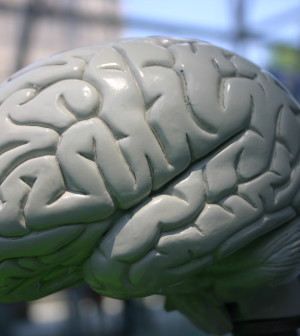- The Best Time of Day to Drink Bone Broth to Maximize Health Benefits
- 8 Ways to Increase Dopamine Naturally
- 7 Best Breads for Maintaining Stable Blood Sugar
- Gelatin vs. Collagen: Which is Best for Skin, Nails, and Joints?
- The Long-Term Effects of Daily Turmeric Supplements on Liver Health
- Could Your Grocery Store Meat Be Causing Recurring UTIs?
- Are You Making This Expensive Thermostat Error This Winter?
- Recognizing the Signs of Hypothyroidism
- 10 Strategies to Overcome Insomnia
- Could Artificial Sweeteners Be Aging the Brain Faster?
Prenatal Fish Oil Supplements May Not Boost Child’s Brain Health, Study Finds


(HealthDay News) – Despite public health recommendations that women consume omega-3 fatty acid supplements while pregnant, new research suggests that offspring do not gain any mental health benefit from the intervention.
One expert not connected to the study wasn’t surprised by the results.
“It is very appealing to say to a woman that if she takes a pill every day, her baby will become smarter,” said Dr. Catherine Herway, assistant director of maternal-fetal medicine at Staten Island University Hospital in New York City. “The reality is that despite all of our advancements in modern science, the best advice remains the same: To optimize maternal and fetal health, there remains no substitute for a well-balanced diet.”
Omega-3 fatty acids — most commonly consumed via oily fish or in fish oil capsules — have been thought to perhaps boost fetal brain development in the womb.
But is that theory borne out by science? In the new study, researchers led by Maria Makrides of the South Australian Health and Medical Research Institute in Adelaide tracked data on more than 300 families in which the mothers had consumed 800 milligrams of an omega-3 supplement per day during their pregnancy.
After running a battery of mental health tests, the study authors then compared the children of mothers who hadn’t taken the supplements with the children of those who had.
The result: By the time they reached the age of 4, boys and girls born to the group taking the supplements showed no advantage when it came to language, memory, problem-solving and/or reasoning skills, the researchers said.
Another expert said that women may have many health-conscious reasons to take a daily omega-3 supplement, however.
“The findings of this Australian study are very credible given its randomized nature and the long-term follow-up of the children,” said Dr. Anthony Vintzileos, chairman of obstetrics and gynecology at Winthrop University Hospital in Mineola, N.Y.
“However, one should not forget the possible benefits of omega-3 fatty acid supplements, which may include decreased risk of cardiac-related death, nonfatal heart attack, nonfatal stroke, and decrease in progression of atherosclerosis [hardening of the arteries] in patients with cardiovascular disease.”
And Herway added that the study’s design did have its limits.
“This study was able to control for several confounders, such as smoking,” she said. “However, it would be extremely difficult to control for other environmental factors that could also confound these results, such as the remainder of the subjects’ diets.”
The findings are reported Saturday in Journal of the American Medical Association, timed to coincide with their presentation at the annual meeting of the Pediatric Academic Societies in Vancouver, Canada.
More information
There’s more on omega-3 fatty acids at the U.S. National Center for Complementary and Alternative Medicine.
Source: HealthDay
Copyright © 2026 HealthDay. All rights reserved.










